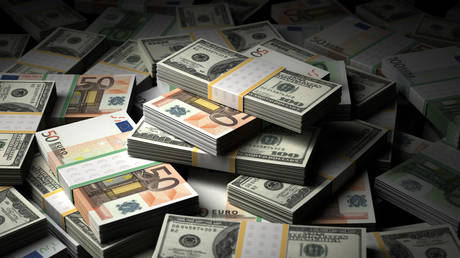Did the West Just Lose WWIII by Forfeit?
In the end, the threat of World War III hasn’t vanished. It has just been postponed...”
By James George Jatras and cross-posted from The Strategic Culture Foundation
In the fall of the year 1480, at a point not far from Moscow, two armies faced each other on the opposite banks of the Ugra River.
On the one side were the forces of the Grand Duchy of Moscow, whose ruler, Grand Prince Ivan III (known as “the Great” and the “gatherer of the Russian lands”), had recently rejected further payment of tribute to the Great Horde.
On the other were the forces of Grand Khan Ahmed bin Küchük, who had come to lay waste to Moscow and instruct the impudent Prince Ivan to mend his ways.
For weeks the two assembled hosts glared at one another, each wary of crossing the water and becoming vulnerable to attack by the other.
Thus ended more than two centuries of the Tatar-Mongol yoke upon the land of the Rus’.
Was this event, which came to be known as “the great standing on the Ugra River,” a model of what happened in Syria last week?
Almost immediately upon reports of the staged chemical attack in Douma on April 7, speculation began as to the likely response from the west – which in reality meant from the United States, in turn meaning from President Donald J. Trump. Would Trump, who had repeatedly spoken harshly of his predecessors’ destructive and pointless misadventures in the Middle East, and who just days earlier had signaled his determination to withdraw the several thousand Americans (illegally) stationed in Syria, see through the obvious deception?
Or, whether or not he really believed the patently untrue accusations of Syrian (and Russian) culpability, would Trump take punitive action against Syria? And if so, would it be a demonstrative pinprick of the sort inflicted almost exactly a year earlier in punishment for an obvious false flag chemical attack in Idlib? Or would we see something more “robust” (a word much beloved of laptop bombardiers in Washington) aimed at teaching a lesson to both Syrian President Bashar al-Assad and his ally, Prince Ivan III’s obstreperous heir Russian President Vladimir Putin?
The answer soon came on Twitter. Assad was an “animal.” Putin, Russia, and Iran were “responsible” for “many dead, including women and children, in mindless CHEMICAL attack” – “Big price to pay.”
Around the world, people mentally braced for the worst. Would a global conflagration start in Syria with an American attack on Russian forces? A grim trepidation reminiscent of the October 1962 Cuban Missile Crisis gripped the hearts of those old enough to remember those thirteen days when the fate of all life on our planet was in doubt.
Certainly there were enough voices in the US establishment egging Trump on. Besides, at home he still had the relentless pressure of the Mueller investigation, intensified by the FBI’s April 9 raid on his lawyer Michael Cohen. Trump’s only respite from the incessant hammering was his strike on Syria last year.
During the first Cold War both American and Soviet forces took great care to avoid direct conflict, rightly afraid it could lead to uncontrolled escalation. But now, in this second Cold War, western commentators were positively giddy at the thought of killing Russians in Syria…
…or rather killing more Russians, citing the slaughter of a disputed number of contractors (or “mercenaries” as western media and officials consistently called them, implying they deserved to have been exterminated). That’ll teach ‘em not to tangle with us! It was unclear whether the warning from Russian Chief of Staff General Valery Gerasimov that Russia would respond against an attack by striking both incoming weapons as well as the platforms that launched would be taken seriously.
After a slight softening of tone by both Trump and Defense Secretary General James “Mad Dog” Mattis on April 12, during which a team from the Organisation for the Prohibition of Chemical Weapons (OPCW) was approaching Douma to conduct an on-site examination, there emerged a slim ray of hope that Trump would step back from acting on the transparently false provocation. (The slimness of any such hope was illustrated by the fact seemingly the most restrained of Trump’s advisers was somebody nicknamed “Mad Dog.”)
When on the evening of Friday the Thirteenth (Washington time) news came that the US had initiated military action, together with France and (the country Russia had accused of staging the Douma fraud) the United Kingdom, many feared the worst. The hasty timing was clearly aimed at preempting the arrival of the OPCW inspectors.
Of greater concern was the extent of the assault? If Russians were killed, Gerasimov was serious.
As it turned out, the worst didn’t come. World War III didn’t happen. Or hasn’t – yet…



